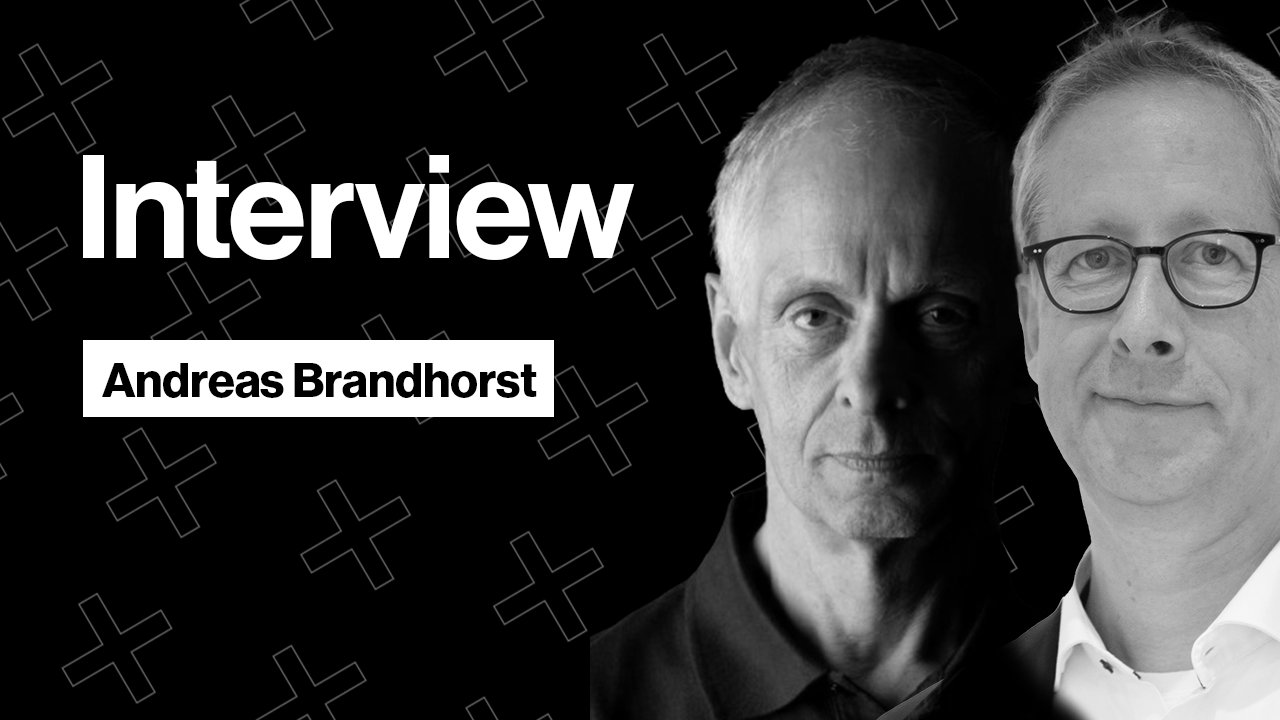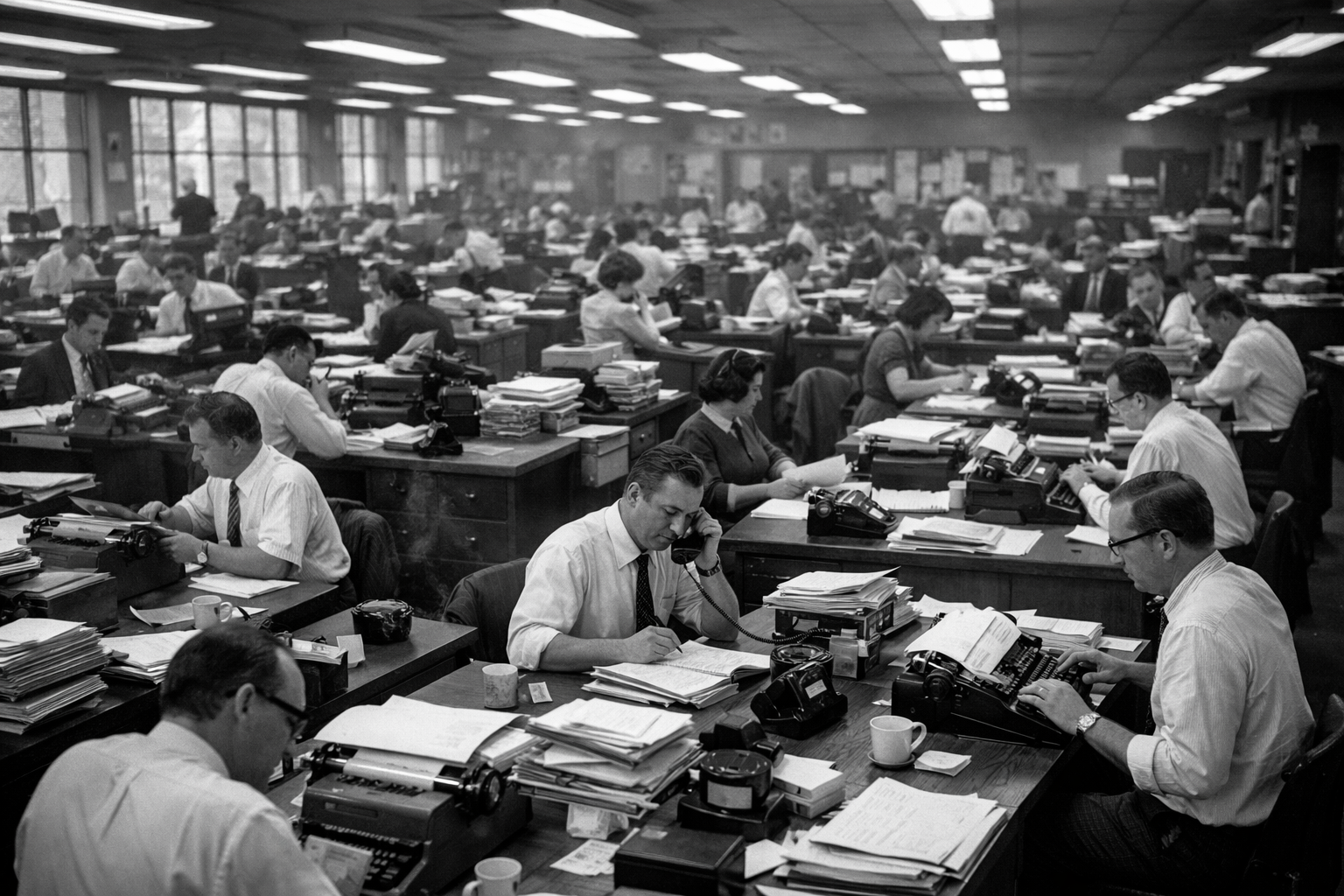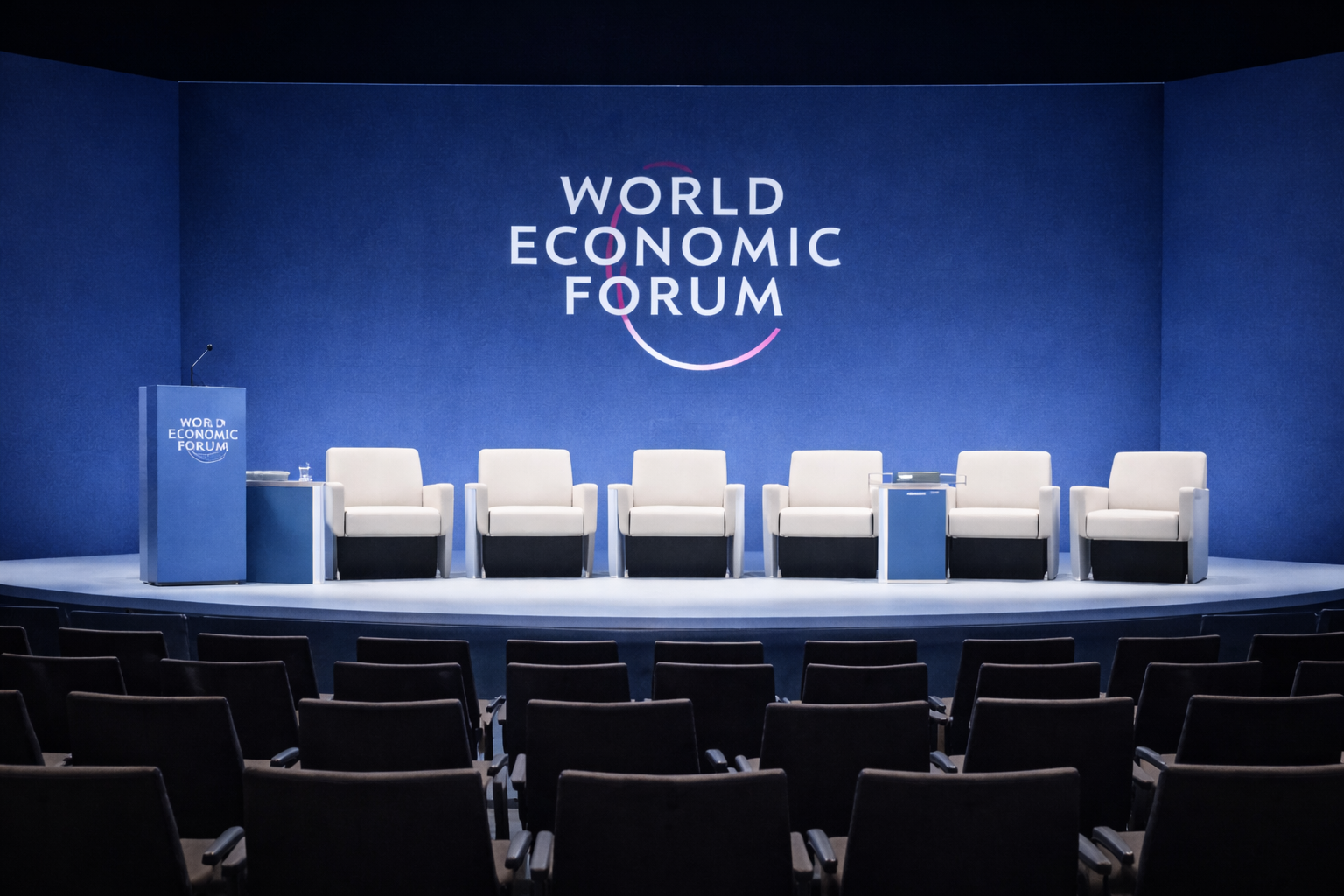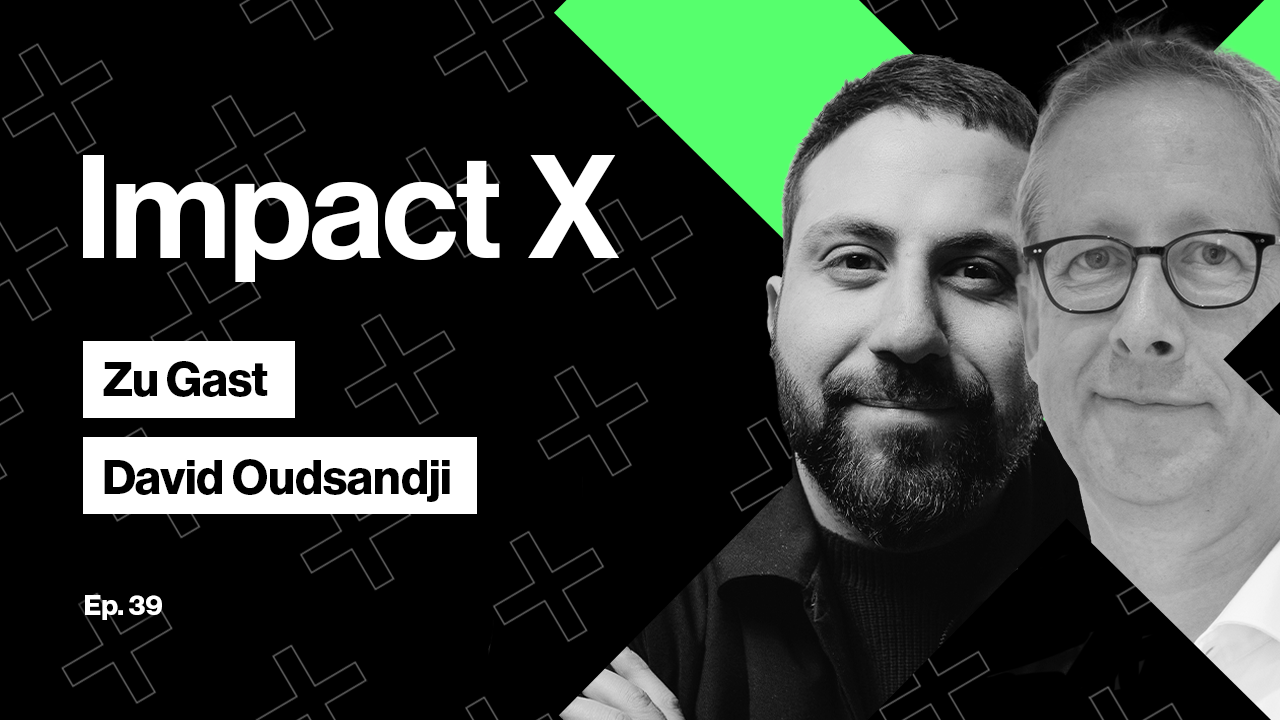A conversation about progress and responsibility
The future is not an option, it is inevitable. But who will shape it – us or our machines? In my conversation with Andreas Brandhorst, one of the brightest minds in the world of science fiction, we take a look at how AI is changing not only our work, but also our creativity. Spoiler alert: The biggest threat is not AI itself, but our convenience.
Stefan Fritz: Why do, and should, we humans want to engage with the future?
Andreas Brandhorst: Because the future affects us all. Because a look into the future or possible futures also tells us a lot about the present.
Stefan Fritz: Can we prepare ourselves better for what’s coming with future novels or do they primarily help us to understand the present better because we can look back from the future to our present reality, so to speak?
Andreas Brandhorst: Both is the case. Science fiction offers us the opportunity to create scenarios for the future, to “think ahead” of the present, so to speak, in order to see where certain developments could lead. Science fiction can just as easily be used to construct a desirable future, a kind of utopia, to show the paths that need to be taken to achieve it.
Stefan Fritz: We humans are the only living beings who understand the future tense and can look back from the future to the present in order to take responsibility for our actions today. Now we are trying to teach AI to think in the same way. Would it be a decisive step forward for humanity if we succeeded?
Andreas Brandhorst: I think we are walking a fine line here. On the one hand, AI could actually become a very powerful tool, an important ally for humanity on the way to a future that is hopefully better than the present. We could use it to make huge advances in science, defeat cancer and other previously difficult-to-cure diseases and perhaps even prevent the impending climate catastrophe. At the same time, artificial intelligence and true machine intelligence, which could soon develop from this, are highly dangerous. We could lose control. Thinking machines could be valuable allies for humans on their way into the future, but if we let them do the thinking for our own convenience, we are giving up an important part of our human nature. Then the threat of stupidity looms. It is already foreseeable today: Until about 15 years ago, average human intelligence in the developed world was rising due to improved living conditions, but since then the trend has reversed. According to the latest estimates, the average intelligence of Homo sapiens will fall to 86% of today’s level by 2050.
Stefan Fritz: Novels are stories. Stories have always been a central element of human culture and serve to pass on knowledge and experience across generations. With AI, this will suddenly change. Machines can take our place and start to tell stories and even spread them independently. What impact will this have on our humanity, culture and identity?
Andreas Brandhorst: A few years ago, at Sony in Berlin, we discussed the art of tomorrow, in particular the question of how AI will change art. Some of the participants doubted whether AI could really influence art, and on that occasion I emphasized how curious I was about AI art. In the meantime, generative AI has triggered a revolution, especially in the artistic field. My prediction: The upheavals have only just begun, and anyone who still doubts the “creativity” of AI will soon be proven wrong. Images produced by AI are conquering the covers of books and magazines. There are already the first AI films, and it won’t be long before AI “resurrects” deceased actors: We will see Humphrey Bogart and co. in new movies. Books written by AI alone will appear on the bestseller lists. Whether we like them or not, I think these developments are inevitable, I am curious and I think that we can develop our own creativity with the help of artificial intelligence. We shouldn’t develop antagonism but rather use the opportunities for cooperation. Perhaps it would amount to something like cross-fertilization, which would open up completely new horizons for us.
Stefan Fritz: There are natural laws and man-made rules and processes. We can theoretically change the latter, even if they are binding for most people. Nobody can escape the laws of nature, but in societies we have created a concept of freedom with the Enlightenment that gives us choices as individuals. Does being human ultimately mean accepting chance as an expression of our freedom in order to remain healthy and normal?
Andreas Brandhorst: We could perhaps escape the supposed “laws of nature” if we actually lived in a simulation – by influencing the parameters of the simulation program. For some people, chance is a consequence of a lack of planning and, worse still, a lack of discipline. BUT: coincidences create space for improvisation, and from there it is not far to creativity. We don’t necessarily need chance “per se,” but we do need more room for imagination. That would undoubtedly make our lives more worth living. And it would also give us more freedom.
Stefan Fritz: Why is freedom of thought so important to us, even though we are manipulated and influenced by algorithms in an omnipresent form today?
Andreas Brandhorst: Freedom of thought is always important, in all circumstances and everywhere. It is a central component of our humanity. But manipulation in the form of false information, on the basis of which we form our opinions and orient ourselves ethically and morally, turns this freedom into a farce, and we must defend ourselves against this. We must retain the ability to distinguish truth from lies. This will be very difficult in a world with more and more fakes.
Stefan Fritz: If we were living in a simulation, then this freedom would be an illusion – we imagine the simulation as the bondage of the matrix. But isn’t that an exaggeration of the concept of freedom? Isn’t it perfectly okay to only be able to live with 8 billion other people in a cooperative form by giving up a little freedom? Is it perhaps necessary to redefine the concept of freedom 300 years after the Enlightenment?
Andreas Brandhorst: Would our freedom be different in the context of a simulation than in the ideological environment of religion? In both cases, we would be dealing with an artificially created world, determined by foreign rules that limit our “freedom.” We don’t need a new definition of freedom, because each of us already has our own – one of the causes of disagreement, conflict and strife.
Stefan Fritz: In “The Rift,” you address the existence of parallel worlds and the possibility of switching between them. What implications does this concept have for our understanding of reality and existence in our own world?
Andreas Brandhorst: We humans only perceive a small part of what actually exists. Our senses are limited, which is why we build tools such as telescopes and microscopes to expand our cognitive horizons. In doing so, we come across mysteries that shake and change our view of the world. Time and again we learn that the most amazing things are hidden beyond the “reality” we perceive. If we were to find proof that we are living in a simulation, it would hardly have any effect on our daily existence, but it would have an impact on all other areas of life. “The Rift” addresses precisely this.
Stefan Fritz: Why did you decide to write novels about the future? What impact, what effect, do you want your novels to have?
Andreas Brandhorst: I don’t write to achieve a certain effect. I write because it gives me the opportunity to think about things in depth and put my thoughts into words.
Stefan Fritz: Literature is always a mirror of the times. You perceive trends and process the zeitgeist. Do you sense fear in people when it comes to AI, or do you also see hope, opportunities and curiosity?
Andreas Brandhorst: Many people are very worried about the technological and social upheavals caused by AI. They fear for their jobs and are losing their bearings in a world that is changing ever faster. I, myself, was skeptical when I started researching “The Awakening” about 10 years ago. That has changed since then. AI can be very, very dangerous, the “last invention of man,” but it can also be used as an extremely powerful tool for improving our world. We have it in our own hands.
Stefan Fritz: You approach your profession, writing, very conscientiously, in a very disciplined way. You work to a fixed rhythm every day. Why is that important to you?
Andreas Brandhorst: This fixed rhythm enables me to be very productive. I’m usually at my computer by 7 in the morning, writing, researching or answering emails from readers. At lunchtime, I go for a 1-hour run, which clears my head, and in the afternoon, I write again, but slowly and very thoughtfully. The result: 3 to 6 manuscript pages a day.
Stefan Fritz: Are you worried that AI will be able to do its job in the future? That AI will be able to be creative and emphatic in the future? What would that mean for you and our society?
Andreas Brandhorst: Above all, I am curious. AI will create images and films, write poems and novels, compose music. It will revolutionize art as we know it and add many new things to it. People have always been afraid of this, of upheaval and the new. Above all, I see this as a challenge and an opportunity to rediscover and expand our own creativity.
The future is not a place we go to – it is a place we create. After talking to Andreas Brandhorst, it is clear that AI can help us to create great things. But only if we have the vision for it. The future belongs to those who start writing it now.



